World
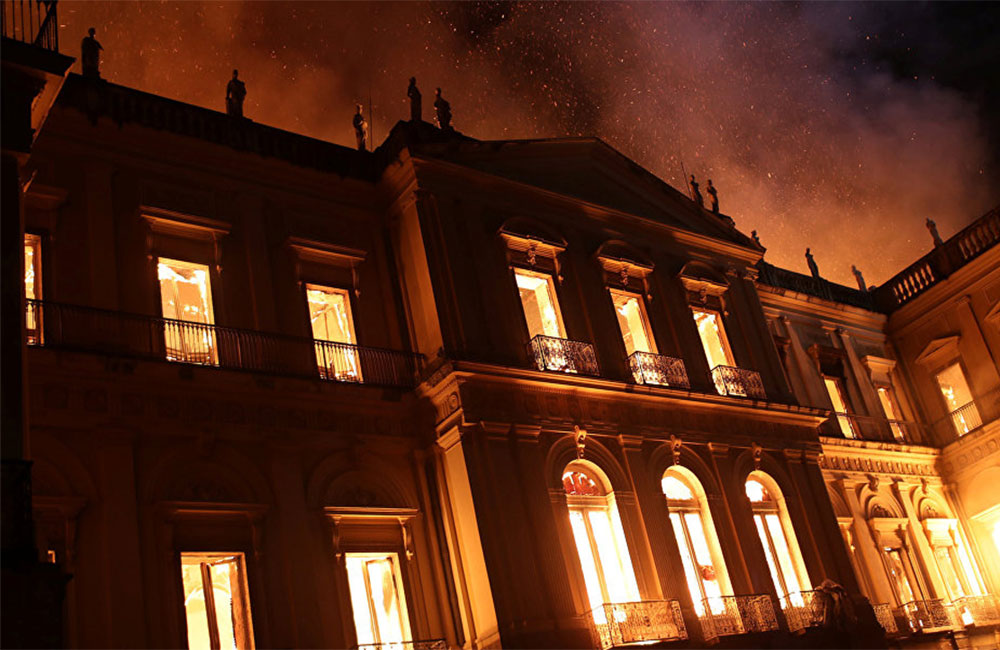
National museum hit by huge fire
A fire has gutted the National Museum of Brazil in Rio de Janeiro, the oldest scientific institution in the country. Most of the 20 million items it contained, including the oldest human remains ever found in the Americas, are believed to have been destroyed.
The cause of the blaze is not known. No injuries have been reported. The museum, located in a building that once served as the residence for the Portuguese royal family, celebrated its 200th anniversary this year.
The fire started on Sunday evening, after the facility had closed for the day.
Brazil's President Michel Temer said in a tweet that it was a "sad day for all Brazilians" as "200 years of work, research and knowledge were lost".
Roberto Robadey, a spokesman for the Rio fire department, is quoted by the Associated Press news agency as saying that the hydrants closest to the museum were not working and that firefighters had to get water from a nearby lake.
By Monday morning the fire was under control and some of the museum's pieces had been rescued, he added.
Source : BBC
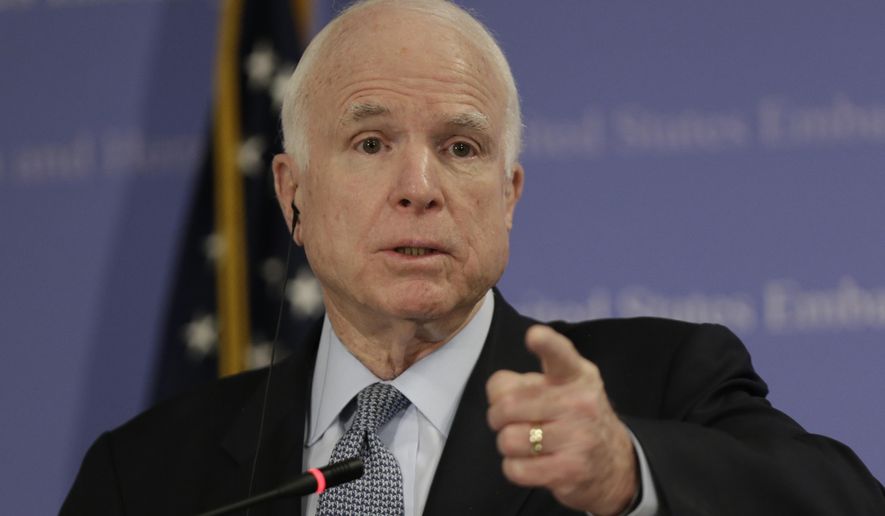
US Senator John McCain dies aged 81
Senator John McCain, the Vietnam war hero turned senator and presidential candidate has died aged 81. McCain died on Saturday surrounded by his family, a short statement released by his office said.
He was diagnosed with an aggressive brain tumour in July 2017 and had been undergoing medical treatment. His family announced on Friday that McCain, who left Washington in December, had decided to stop treatment.
The six-term senator and 2008 Republican presidential nominee was diagnosed after doctors discovered his tumour during surgery to remove a blood clot from above his left eye last July. His family said he would lie in state in Phoenix, Arizona, and in Washington DC before a funeral at the Washington National Cathedral and his burial in Annapolis, Maryland.
The son and grandson of Navy admirals, McCain was a fighter pilot during the war in Vietnam. When his plane was shot down, he spent more than five years as a prisoner of war. While in the custody of his captors, he suffered torture that left him with lasting disabilities.
Source : BBC
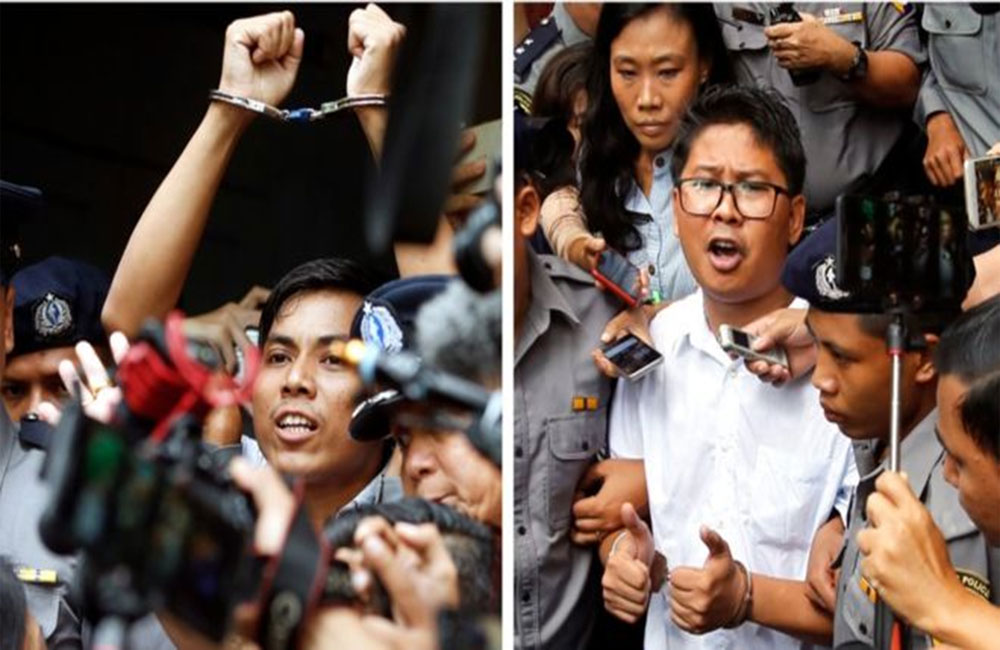
A crushing blow to freedom: Myanmar jails Reuters journalists
A court in Myanmar has sentenced two Reuters journalists to seven years in prison for violating a state secrets act while investigating violence against the Rohingya minority.
Wa Lone and Kyaw Soe Oo, nationals of Myanmar, were arrested while carrying official documents which had just been given to them by police officers. They have maintained their innocence, saying they were set up by police. The case has been widely seen as a test of press freedom in Myanmar.
"I have no fear," Wa Lone, one of the two journalists, said after the verdict. "I have not done anything wrong. I believe in justice, democracy and freedom."
"Today is a sad day for Myanmar, Reuters journalists Wa Lone and Kyaw Soe Oo, and press freedom anywhere," Reuters editor-in-chief Stephen Adler said.
The two men, who both have families with young children, have been in prison since their arrest in December 2017. Both of the journalists are Myanmar citizens who were working for the international news agency.
Source : BBC
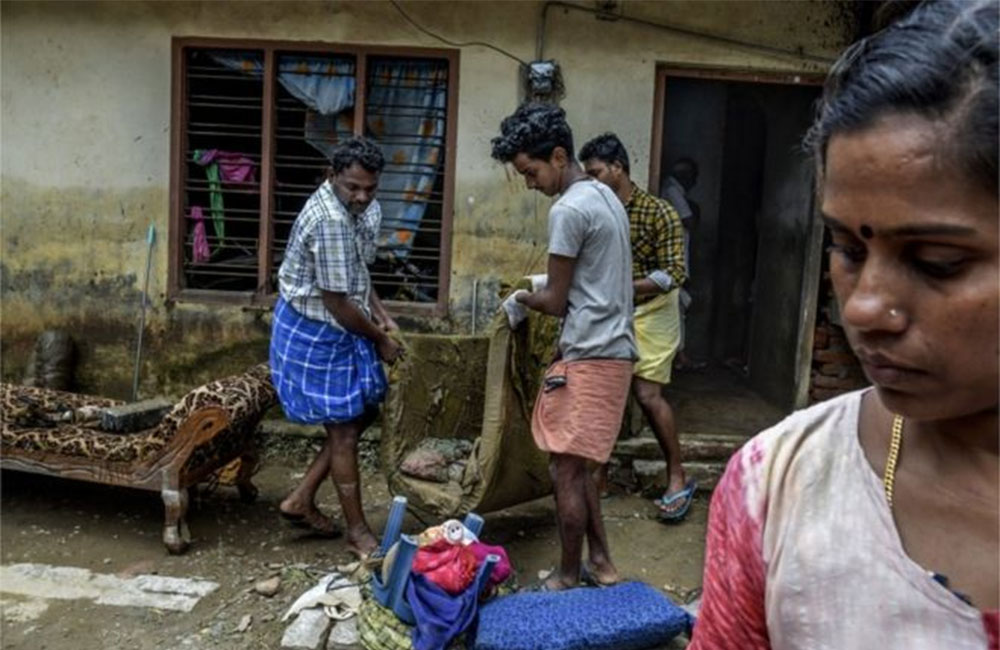
Kerala floods Victims face snake menace as waters recede
Flood victims returning home in the Indian state of Kerala have been warned to prepare for a new menace: Snakes. Several snake-catching teams have been deployed to affected areas, amid fears the reptiles could be hiding in cupboards, under carpets, or inside washing machines in previously submerged homes.
Hospitals in the worst-hit areas are readying supplies of anti-venom. Devastating flooding has killed around 400 people in Kerala since June.
More than a million others were displaced, with many of them taking shelter in thousands of relief camps across the southern state. As well as the glut of snakes, scorpions and other insects are reported to have moved into human homes.
Source : BBC
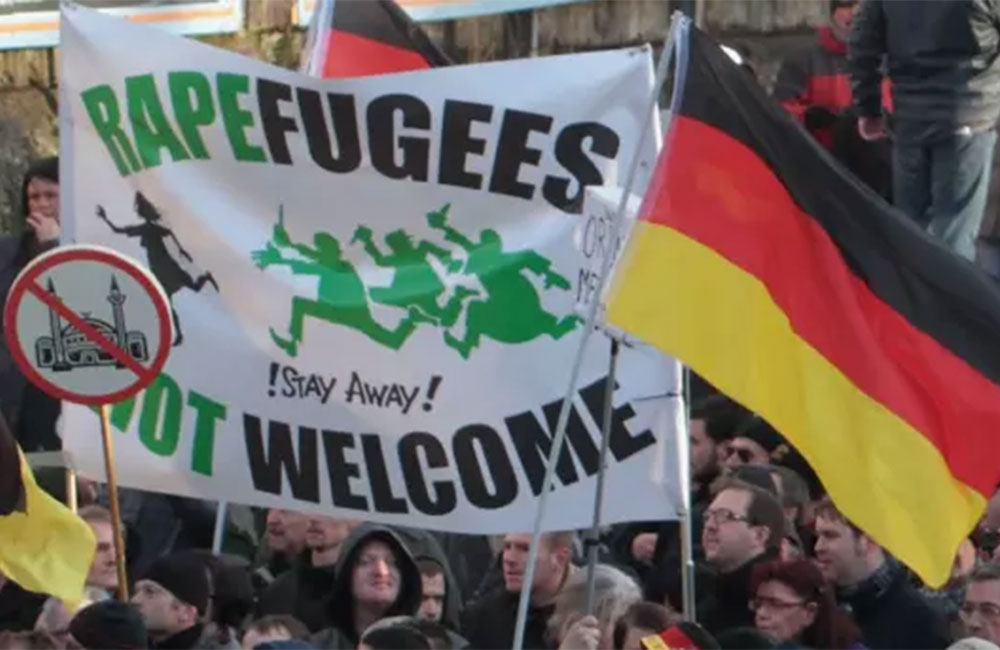
Syrian migrant in Germany beaten with iron chain as far‑Right violence increases
There were renewed far-Right protests in Germany on Thursday night as violent attacks against migrants spread across the east of the country.
Around 800 protestors gathered in Chemnitz, the scene of neo-Nazi riots earlier in the week following the suspected killing of a man by two immigrants.
Protestors faced off against police outside a political meeting where regional officials sought to calm residents but the situation appeared peaceful as night fell.
Hundreds of miles to the north, a Syrian man was seriously injured after he was attacked and beaten with an iron chain by three Germans in a sign the violence is spreading.
In Chemnitz, regional officials were booked and jeered as they tried to reassure locals at a restive town hall meeting.
Michael Kretschmer, the regional prime minister of Saxony state, struggled to make himself heard above catcalls as he called on people to remain calm and respect the law.
“I had tears in my eyes when I heard today that a Chinese woman who has lived here for 13 years had water thrown over her, and felt it was a message for her to leave,” he said.
Outside the protestors chanted “We are the people” and held aloft banners saying Chemnitz must not become an “African colony”.
Violent protests over the killing of Daniel Hillig, a German-Cuban man, in Chemnitz at the weekend have shaken Germany.
An Iraqi and a Syrian have been arrested on suspicion of the stabbing on Sunday night.A prison officer admitted yesterday he was responsible for leaking an arrest warrant for one of the men to far-Right groups who shared it on social media.Authorities said the officer had been suspended pending a full inquiry.
Source : Telegraph
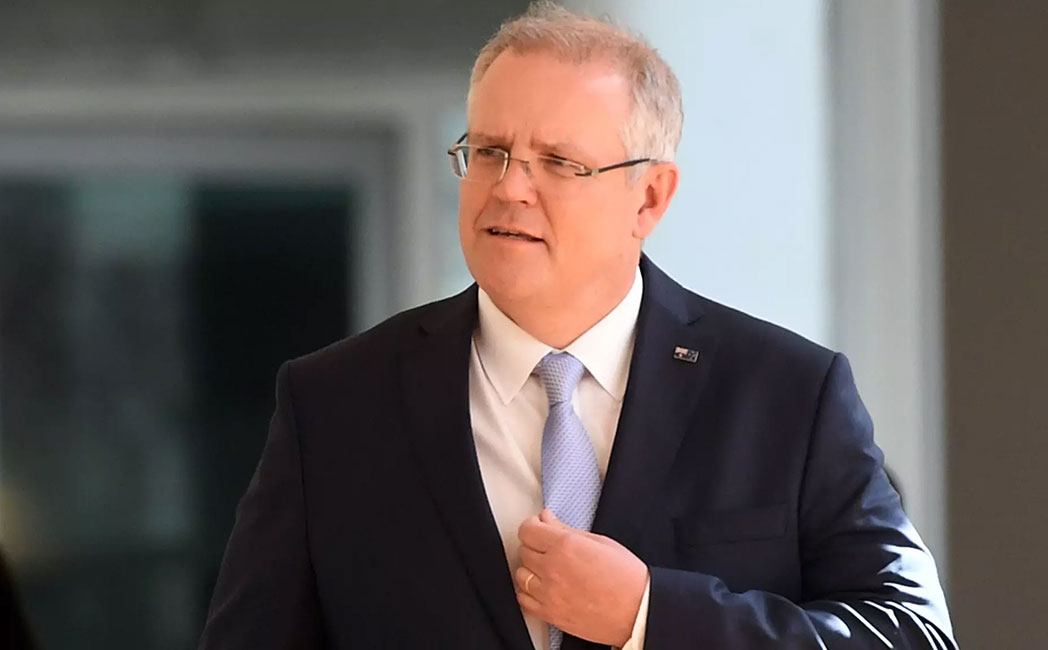
Scott Morrison is new Australian PM as Malcolm Turnbull ousted
Scott Morrison has become Australia's new prime minister after Malcolm Turnbull was forced out by party rivals in a bruising leadership contest.
Turnbull has been under pressure from poor polling and what he described as an "insurgency" by conservative MPs.
Morrison, the treasurer, won an internal ballot 45-40 over former Home Affairs Minister Peter Dutton - who had been Mr Turnbull's most vocal threat.
Turnbull is the fourth Australian PM in a decade to be ousted by colleagues.
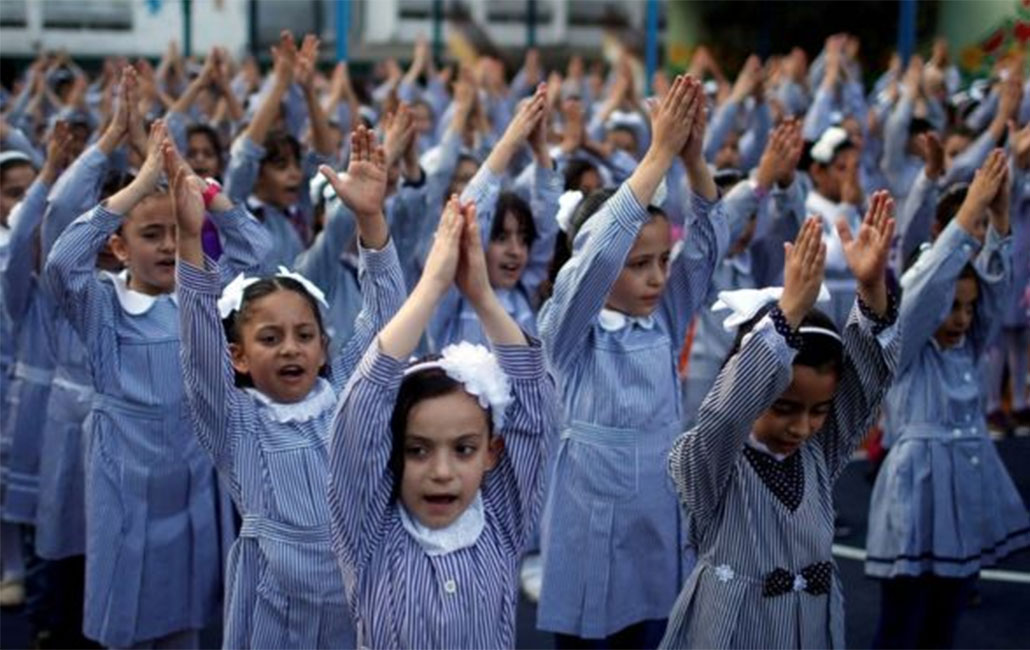
US ends aid to Palestinian refugee agency
The United States is ending all funding for the UN's Palestinian refugee agency, the US State Department says. It described the organisation, the United Nations Relief and Works Agency (Unrwa), as "irredeemably flawed".
The US administration has "carefully reviewed" the issue and "will not make additional contributions to Unrwa," spokeswoman Heather Nauert said.
A spokesman for Palestinian President Mahmoud Abbas later said the move was an "assault" against his people.
"Such a punishment will not succeed to change the fact that the United States no longer has a role in the region and that it is not a part of the solution," Nabil Abu Rudeina told Reuters news agency.
He added that the decision was "a defiance of UN resolutions". A spokesman for Unrwa, Chris Gunness, defended the agency in a series of tweets.
"We reject in the strongest possible terms the criticism that Unrwa's schools, health centres, and emergency assistance programs are 'irredeemably flawed'," he wrote.
Source : BBC
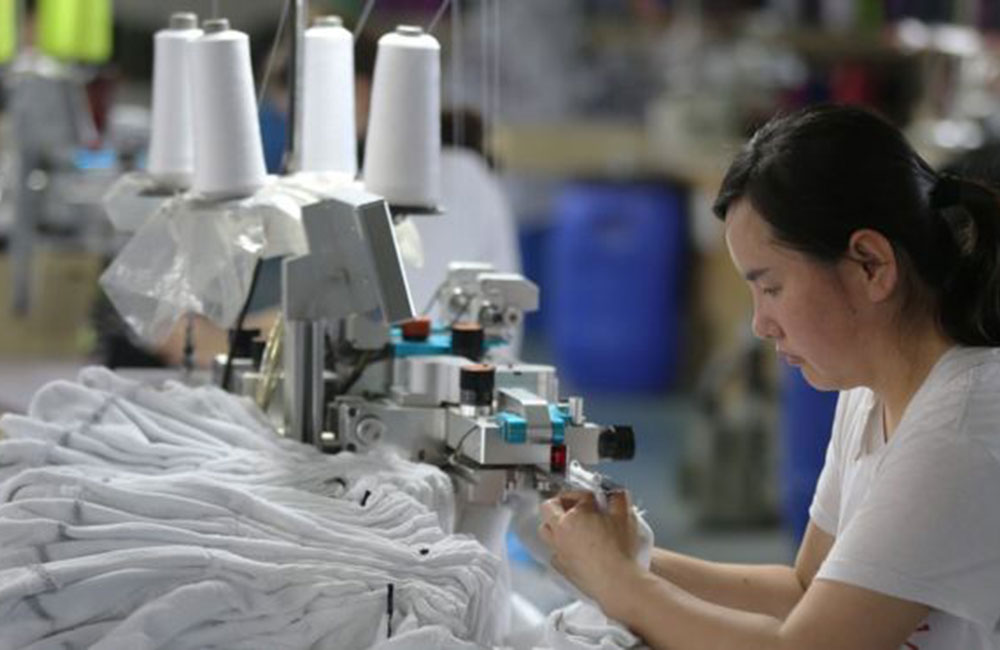
China vows counter-attack on Trump's new tariffs
China says it plans to file a fresh complaint against President Donald Trump's tariffs at the World Trade Organisation (WTO).
The threat comes after the US imposed a second round of tariffs on $16bn (£12.4bn) of Chinese goods, in an escalation of their trade war.
The 25% tax came into effect at noon in Beijing (04:00 GMT), affecting goods including motorcycles and antennas.
There are fears that more tariffs could further hurt companies and consumers.
China's commerce ministry warned of a "counter-attack" after Washington imposed the new tariffs, saying it "clearly suspected" the US of violating WTO rules. It filed the first complaint at the WTO in July.
On Thursday, China imposed retaliatory taxes on $16bn of US goods at the exact same time as the US levies came into force. The levies cover goods including coal, medical instruments, cars and buses.
A total of $50bn worth of imports from both sides will now be taxed under this second round.
The tit-for-tat tariffs come as officials from the US and China are holding low-level talks in Washington.
But hopes are not high they will bring a breakthrough in the trade row which began in July.
Source : BBC
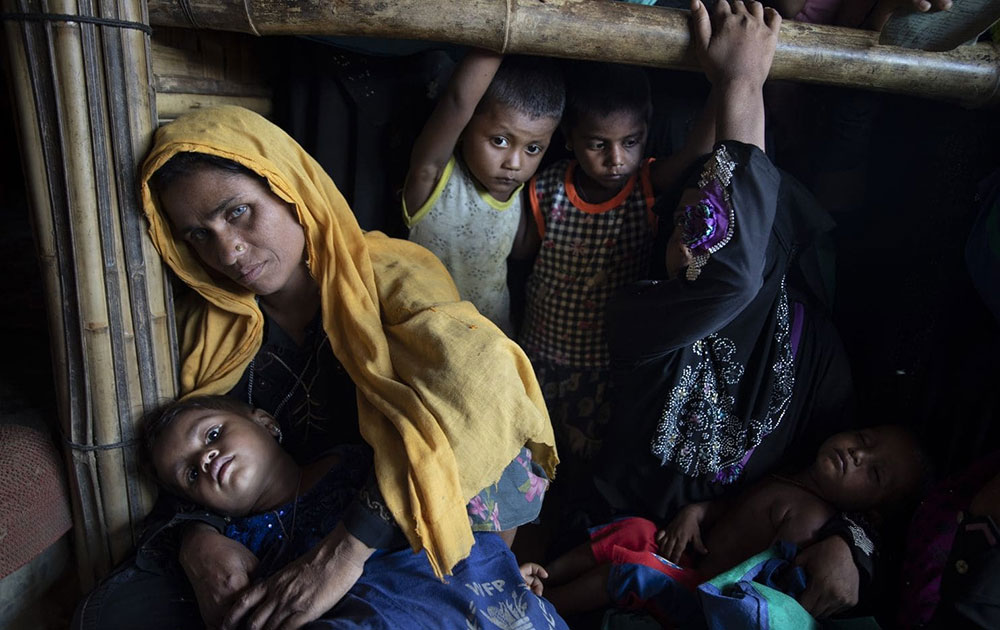
Myanmar Rohingya: UN says military leaders must face genocide charges
A UN report has said top military figures in Myanmar must be investigated for genocide in Rakhine state and crimes against humanity in other areas.
The report, based on hundreds of interviews, is the strongest condemnation from the UN so far of violence against Rohingya Muslims. It says the army's tactics are "grossly disproportionate to actual security threats". Myanmar rejected the report.
At least 700,000 Rohingya fled violence in the country in the past 12 months. The report names six senior military figures it believes should go on trial and sharply criticises Myanmar's de facto leader, Nobel Peace Prize laureate Aung San Suu Kyi, for failing to intervene to stop attacks.
It calls for the case to be referred to the International Criminal Court (ICC). The government has consistently said its operations targeted militant or insurgent threats but the report says the crimes documented are "shocking for the level of denial, normalcy and impunity that is attached to them".
"Military necessity would never justify killing indiscriminately, gang raping women, assaulting children, and burning entire villages," the report says. The UN mission did not have access to Myanmar for its report but says it relied on such sources as eyewitness interviews, satellite imagery, photographs and videos.
Source : BBC
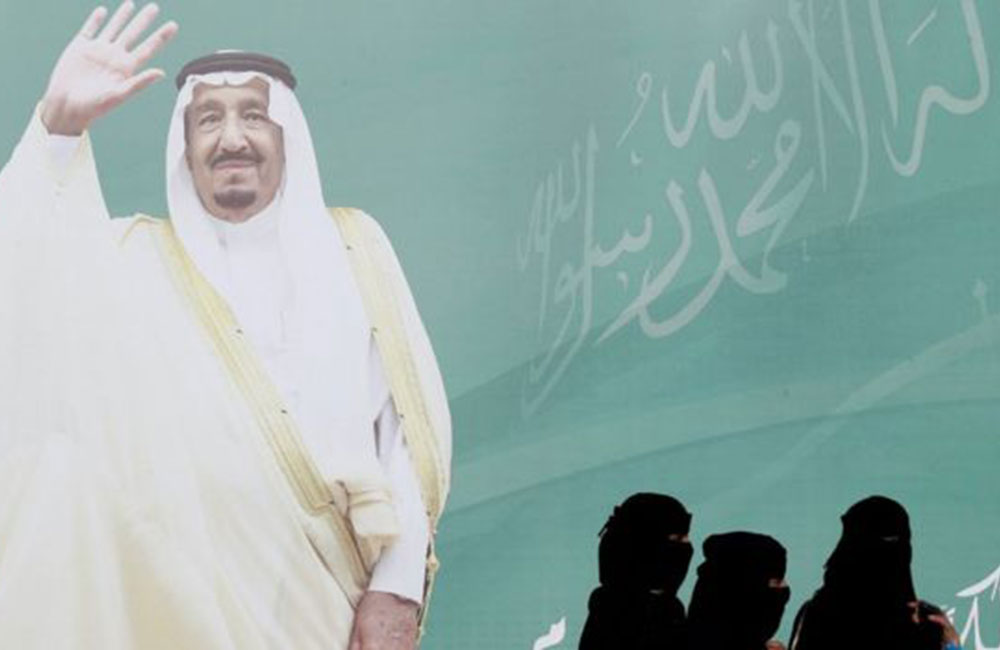
Saudi Arabia 'seeks death penalty for woman activist'
Saudi Arabia's public prosecutor has reportedly sought the death penalty for five activists, including the female rights defender Israa al-Ghomgham. Human Rights Watch said they recently went on trial at a terrorism tribunal on charges including "participating in protests" in the restive Qatif region.
It has been the scene of demonstrations by the minority Shia Muslim community. Ghomgham is believed to be the first Saudi woman to possibly face the death penalty for rights-related work. HRW warned that it set "a dangerous precedent for other women activists currently behind bars" in the Gulf kingdom. At least 13 human rights defenders and women's rights activists have been arrested since mid-May, accused of activities deemed a risk to national security. Some have been released, but others remain detained without charge.
HRW said Ghomgham was an activist well known for participating in and documenting the mass protests that have taken place in Qatif since 2011. Members of the Shia community have taken to the streets to complain about the discrimination they say they face from the Sunni-led government. Ghomgham and her husband were reportedly arrested in December 2015, and they have been held at Dammam's al-Mabahith prison ever since.
The public prosecutor accused Ghomgham and the other four activists of charges including "participating in protests in the Qatif region", "incitement to protest," "chanting slogans hostile to the regime", "attempting to inflame public opinion", "filming protests and publishing on social media", and "providing moral support to rioters", according to HRW.
The prosecutor reportedly called for them to be given the death penalty at the start of their trial based on the Islamic legal principle of "tazir", under which the judge has discretion over what constitutes a crime and over the sentence.
"Any execution is appalling, but seeking the death penalty for activists like Israa al-Ghomgham, who are not even accused of violent behaviour, is monstrous," Sarah Leah Whitson, HRW's Middle East director, said in a statement.
"Every day, the Saudi monarchy's unrestrained despotism makes it harder for its public relations teams to spin the fairy tale of 'reform' to allies and international business."
The European Saudi Organisation for Human Rights and ALQST, a London-based Saudi human rights group, have called on the authorities to drop the charges against Ghomgham.
The Saudi government has so far not commented on Ghomgham's trial. However, courts have sentenced to death several Shia activists after convicting them of what human rights groups have called politically-motivated charges.
Officials have said those executed were guilty of terrorism-related offences, including taking up arms against the government and attacking security forces.
Source : BBC
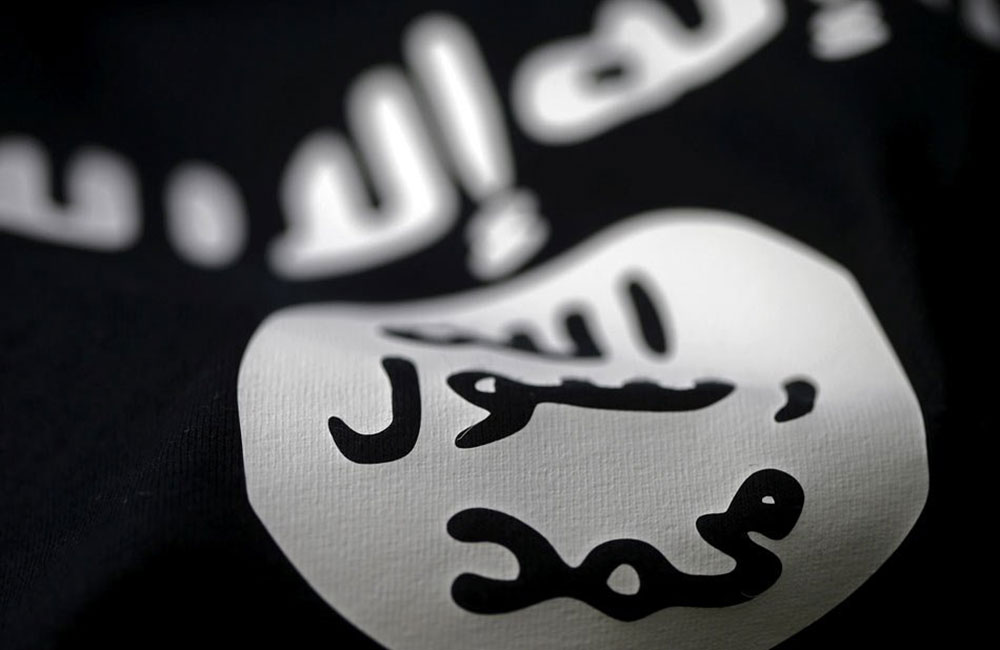
Afghanistan Islamic State leader 'killed in air strike
The leader of the Islamic State (IS) group in Afghanistan was killed in an air strike on Saturday, Afghan officials say. Abu Saad Erhabi and 10 other members are said to have died in an operation in the eastern province of Nangarhar, near the border with Pakistan.
He is the fourth Afghan leader of the group to be killed in recent years. The IS affiliate has been active there since 2014, claiming a number of deadly recent attacks. It is sometimes known as Islamic State Khorasan after a historic name for Afghanistan and surrounding areas.
The National Directorate of Security in Kabul said the strikes that killed Erhabi were part of a joint air and ground operation conducted alongside US-led coalition forces. US officials did not confirm his death but said they had conducted a strike in the area targeting "a senior leader of a designated terrorist organisation". The previous leader of Islamic State Khorasan, Abu Sayed, was killed in a US strike on the group's headquarters in Kunar province in July 2017.
The group has been blamed for a number of attacks in Afghanistan this year - including a suicide bombing at a Kabul education centre that killed dozens of people. The group has not commented on the reports of Erhabi's death.
Source : BBC
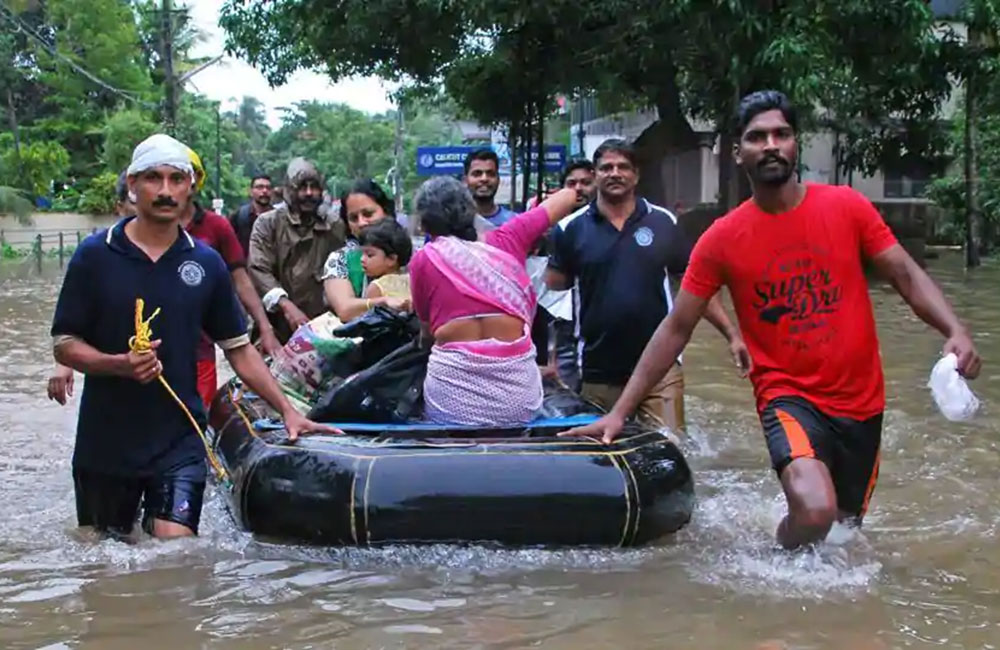
Relief teams rescue 22,000 in Kerala as rains ease
About 22,000 people were rescued from the flood-hit Indian state of Kerala on Sunday, officials say, after monsoon rains finally eased.
Military teams, as well as disaster response forces and local fishermen, reached some of the worst hit areas.
Helicopters also brought much-needed supplies to communities cut-off by two weeks of incessant rain.
More than 350 people have been killed, most of them in landslides, since the monsoon started in June.
Kerala's chief minister Pinarayi Vijayan said the number of people taking refuge in the 5,645 relief camps now stood at 725,000.
But he vowed on Sunday "to save even the last person stranded".
Meanwhile, the head of the state's disaster management team, Anil Vasudevan, said he was preparing to deal with a possible outbreak of waterborne and airborne diseases in temporary relief camps.
Source : BBC
Page 28 of 51